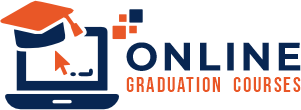If you’re interested in a career in computers or information technology, the Bachelor of Computer Applications (BCA) is a great course to begin your journey. Before joining, it’s important to understand the BCA syllabus, how long the course takes, and what subjects you’ll be learning in each semester.
This blog will help you with everything from eligibility, course duration, and the complete BCA subject list, semester by semester. Let’s get started.
Table of Contents
What is a BCA Degree Course?
The BCA degree course is a 3-year undergraduate program that teaches you how computers work, how to write programs, and how to build websites, apps, and software. It’s one of the most popular courses for students who want to work in IT, software development, or related fields.
This course is designed for students who want to build careers in computers, software development, or the IT industry. It is divided into six semesters, with two semesters in each year.
Duration of BCA Course
Key Details:
- Total Duration: 3 Years
- Semesters: 6 (2 semesters per year)
- Each Semester Length: Around 5 to 6 months
- Course Type: Full-time, Part-time, Online, or Distance mode
- Project/Internship: Usually included in the final semester
Each semester includes theory subjects, practical/lab work, internal assessments, and final exams. Some universities also include project work, seminars, or internships as part of the course in the final year to give students industry exposure.
Eligibility for the BCA Course
To apply for a BCA degree course, students must meet basic eligibility criteria. While exact requirements may vary from college to college, here are the general rules:
Minimum Qualifications:
- Must have passed 12th grade (10+2) from a recognized board
- Can be from any stream (Science, Commerce, or Arts), but Mathematics or Computer Science in the 12th is preferred in some colleges
Minimum Marks:
- Generally, a minimum of 45% to 50% marks in the 12th grade
- Some colleges may require higher percentages or conduct entrance tests
Age Limit:
- Most colleges do not have a strict age limit
- Some universities may set age criteria (usually below 24 years for the general category)
Most universities also do not require national-level entrance exams for BCA. However, private colleges may conduct their own tests or interviews.
BCA Subject List: Semester-Wise Syllabus Breakdown
Let’s now explore the BCA syllabus in detail with all subjects semester-by-semester. This breakdown will help you clearly understand what you will study during each phase of the three-year course.
Semester 1 – Introduction to Basics
Subjects:
- Fundamentals of Computers
- Mathematics I
- C Programming
- Communication Skills / English
- Digital Logic
- Practical: C Programming Lab, Office Tools Lab
Semester 2 – Data and Operating Systems
Subjects:
- Data Structures
- Database Management Systems (DBMS)
- Mathematics II
- Operating Systems
- Organisational Behavior
- Practical: DBMS Lab, Data Structure Lab
Semester 3 – Programming & Networking
Subjects:
- Object-Oriented Programming (OOP) in C++
- Software Engineering
- Computer Networks
- Web Technologies (HTML, CSS, JavaScript)
- Practical: OOP Lab, Web Development Lab
Semester 4 – Java and Systems
Subjects:
- Java Programming
- Computer Architecture
- Management Information Systems
- Python Programming (optional in some universities)
- Practical: Java Lab, MIS or Python Lab
Semester 5 – Development and Electives
Subjects:
- Web Application Development
- Data Communication
- Elective Subject (AI, ML, IoT, etc.)
- Mini Project
- Practical: Elective Lab, Web Application Lab
Semester 6 – Final Year Project
Subjects:
- Mobile App / Cloud Computing
- Industrial Internship / Project
- Seminar & Viva
- Final Major Project
Popular Electives in the BCA Syllabus
In the final year of the BCA degree course, many universities offer students the option to choose elective subjects based on their interests and career goals. These electives are designed to give you extra knowledge in specialised and trending areas of the IT industry. Here are some of the most popular elective subjects in the BCA syllabus:
1. Artificial Intelligence (AI)
AI is the science of making machines think and act like humans. This elective teaches students how computers can be trained to make smart decisions, recognise patterns, and solve complex problems.
What You’ll Learn:
- Machine learning basics
- Algorithms used in AI
- Real-life uses like chatbots and virtual assistants
2. Machine Learning (ML)
This subject focuses on how computers can learn from data without being directly programmed. It’s closely related to AI and is widely used in industries like healthcare, finance, and marketing.
What You’ll Learn:
- Supervised and unsupervised learning
- Regression and classification models
- Python tools like Scikit-learn
3. Cybersecurity
With the rise in online data and transactions, cybersecurity is one of the most in-demand fields. This subject teaches you how to protect systems and networks from digital attacks.
What You’ll Learn:
- Cyber threats and ethical hacking
- Network security
- Data privacy and encryption
4. Cloud Computing
This elective introduces students to cloud platforms where data and software are stored online. It is helpful for students who want to work in IT infrastructure, DevOps, or system administration.
What You’ll Learn:
- Basics of cloud storage and services (like AWS, Azure, Google Cloud)
- Deployment and virtualisation
- Real-world cloud applications
5. Internet of Things (IoT)
IoT is about connecting everyday devices to the Internet, such as smartwatches, home appliances, and cars. This subject is great for students interested in hardware, sensors, and smart systems.
What You’ll Learn:
- IoT architecture and sensors
- Communication between devices
- Building simple IoT-based projects
These subjects help you specialise in a trending field and prepare for future roles in the industry.
Skills You Will Gain from the BCA Degree Course
By completing the full BCA syllabus, students develop a strong set of skills, including both technical and professional abilities that are essential in today’s technology-driven world.
- Programming in C, C++, Java, Python
- Web development (HTML, CSS, JavaScript, PHP)
- Software design and analysis
- Database management using MySQL/Oracle
- Network basics and cybersecurity principles
- Mobile and cloud application basics
- Logical thinking and problem-solving
Career Options After BCA
After finishing your BCA degree course, you can apply for many job roles: software developer, web designer, mobile app developer, and IT support executive. The BCA degree prepares you for a wide range of opportunities in both the private and public sectors.
- Software Developer
- Web Developer
- UI/UX Designer
- Data Analyst
- System Administrator
- IT Support Specialist
- Database Administrator
- Junior Android/iOS Developer
You can also pursue higher education, such as an MCA, MSc in IT, MBA in Information Technology, or various certification courses (such as Google, AWS, or Microsoft).
Final Thoughts
The BCA syllabus is structured to help you grow from a beginner into a confident IT professional. Every semester, you build more technical knowledge, experience, and confidence to enter the job market or pursue higher studies. Understanding the BCA subject list gives you a clear roadmap for what lies ahead in this 3-year journey. If you enjoy working with technology, solving problems, and building digital tools, the BCA degree course is the perfect first step.

